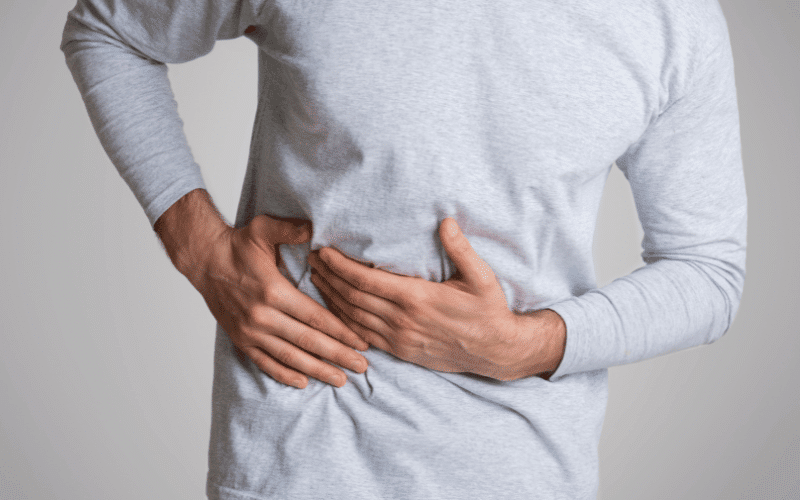Symptom 3. Abdominal Pain and Swelling

Abdominal pain and swelling are common early signs of liver cirrhosis. As the liver becomes increasingly scarred and its function declines, blood flow through the organ can become restricted, leading to increased pressure in the blood vessels around the liver. This increased pressure, known as portal hypertension, can cause fluid to accumulate in the abdominal cavity, a condition called ascites.
Ascites can lead to abdominal discomfort, bloating, and a feeling of fullness or heaviness in the abdomen. In more severe cases, the swelling may become visibly noticeable and can cause difficulty breathing due to the pressure on the diaphragm. Additionally, portal hypertension can lead to the development of enlarged blood vessels, called varices, in the esophagus and stomach. These varices are prone to rupture and bleeding, which can cause severe abdominal pain and other complications.
If you experience abdominal pain or swelling that persists or worsens, it’s important to seek medical attention. A healthcare professional can evaluate your symptoms, perform necessary tests, and determine the cause of your discomfort. If liver cirrhosis is the cause, early intervention is crucial for managing symptoms and slowing the progression of the disease. (3)